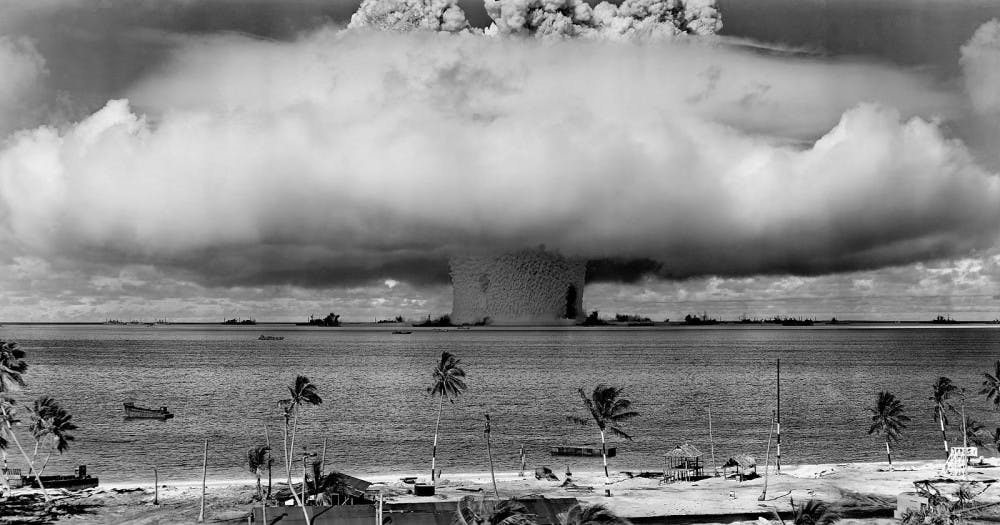Eighty-four years ago today, a man named Leo Szilard was walking across a London street when he had an idea that would change the course of humanity forever.
While Szilard, a physicist from Hungary, is known for many things, his conception of the nuclear chain reaction nears the top of the list. His persistence over the next few years with finding the right types and quantities of elements to create a reaction inevitably helped bring the Manhattan Project to fruition.
American journalist Richard Rhodes chronicled the development of the nuclear research in his book, “The Making of the Atomic Bomb.” He described the moment Szilard conceived his famous idea, saying “as he crossed the street, time cracked open before him and he saw a way to the future.”
While Szilard may have seen the future, did he see the irony in his idea? He patented an idea for a nuclear chain reaction — an idea that would cause a chain reaction for decades, causing devastation in Japan, a worldwide arms race and threats from rogue nations like Iran and North Korea.
Arguments can be made on both sides whether the rise of nuclear power is an ugly necessity or an unfortunate mistake, but the debate is irrelevant. What happened to Szilard nearly a century ago is an important lesson for everyone — people’s choices can have devastating outcomes.
That doesn’t mean that every choice, or every outcome will cause a butterfly effect that will inevitably threaten humanity, but it does mean choices can threaten the people around you.
For example, Florida Gov. Rick Scott and many others have said that choosing to stay in the path of Hurricane Irma is dangerous for yourself, but it also poses a risk to first responders. Now that the storm has passed, emergency personnel are hard at work trying to search for and rescue people caught up in Irma’s mayhem. Some of them may die trying to save those who did not heed warnings to evacuate.
You don’t have to be a physicist or a Floridian to take caution before making decisions though. Even in the peaceful Cumberland Valley, far away from nuclear threats and devastating hurricanes, each person has the power to ignite great change.
Anyone could be walking across campus and suddenly have a great idea of their own, such as a way they can organize a fundraiser to help hurricane victims. With the persistence to see your idea to completion you could spark the same chain reaction that ultimately leads to something great, like a multi-campus fundraising campaign that could help hundreds or thousands in need.
But bad ideas can happen too. Like choosing to go out drinking with friends without a designated driver. A simple, avoidable mistake can lead to the deaths of innocent people. Just like with Szilard and other atomic physicists, you may never wish to cause harm with your ideas, but they can still create terrible and lasting outcomes.
Whether its Sept. 12, 1933, or Sept. 12, 2017, ideas can create chain reactions that change a person’s world. No matter what the idea is, it’s important to take the time to think about how it can affect you and the people around you.




The Slate welcomes thoughtful discussion on all of our stories, but please keep comments civil and on-topic. Read our full guidelines here.